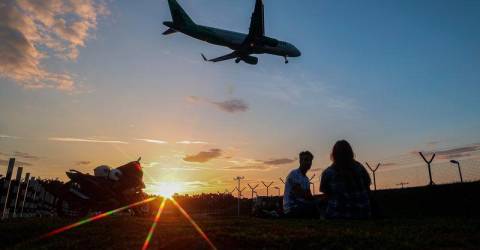PETALING JAYA: Passenger traffic in Malaysia’s aviation industry may face delays in recovery due to recent setbacks experienced by airlines.
MIDF Research noted that the delay in recovery is attributed to “aircraft delivery delays and shortages of parts and labour.”
The New Straits Times reported that the Malaysia Aviation Group (MAG), which operates Malaysia Airlines and Firefly, announced in August that it would cut capacity to manage “supply constraints”, as quoted, caused by delays in aircraft deliveries and a shortage in spare parts, among other issues.
MAG stated that the first half of this year (1H24) saw total seat capacity at 85%, with the “average load factor”, as quoted, increasing to 79%.
In contrast, passenger traffic in July reached 92%, with the international sector “outperforming”, as quoted, the domestic sector since November 2023.
ALSO READ: Aviation experts call for overhaul of Malaysia Airlines
The return and introduction of foreign airlines have supported the recovery of passenger traffic, bringing the total number of airlines operating in Malaysia to 71, with five more expected in the second half of this year.
MIDF noted that Capital A Bhd aims to reactivate 15 more aircraft and expects eight new deliveries, which will increase the company’s operational fleet from 82% in the second quarter of this year (Q2 2024).
In the recent quarter, the firm’s airlines, including AirAsia (excluding Cambodia), recovered 79% of their seat capacity, estimating a 90% average load factor.
“The group has projected that passenger traffic will recover to 89% in Q3 2024, supported by an 82% seat capacity recovery. Moreover, the high-yield environment presents additional upside, with the average fare rising to RM239 in 1HFY24 – up 34% above pre-Covid levels – as demand continues to surpass capacity recovery,“ the research said.
ALSO READ: Loke: Reduction in Malaysia Airlines flight frequency temporary measure
Capital A also projected that the US dollar-ringgit exchange rate assumption changed by five percent will affect financial earnings in 2024 by 10%.
“Its fleet was not significantly reduced during the pandemic, allowing it to focus on expansion and creating an opportunity to capitalize on the capacity gaps left by its competitors,” the note added.

